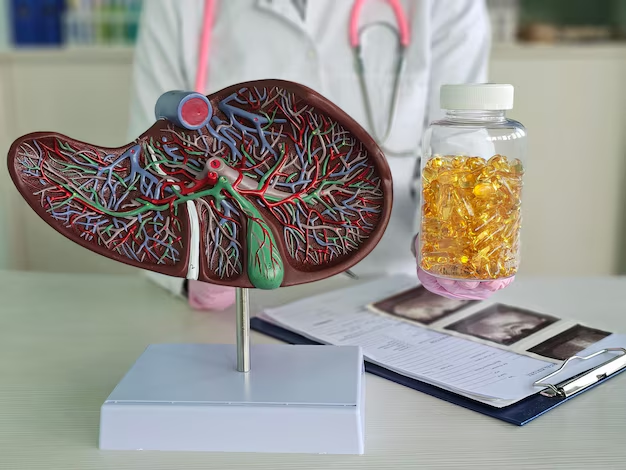How to Catch Pancreatic Cancer Early: Understanding the Signs and Steps
Pancreatic cancer often remains silent until its later stages, making early detection a significant challenge. Yet, early diagnosis can tremendously impact outcomes and treatment options. By knowing the potential warning signs and understanding the diagnostic process, you can take proactive steps in addressing concerns about pancreatic cancer. So, how can you catch this elusive disease in its early stages?
Understanding Pancreatic Cancer
The pancreas, nestled deep within the abdomen, plays a vital role in digestion and blood sugar regulation. When cancer develops in this organ, it can disrupt these essential functions. There are different types of pancreatic cancer, with pancreatic adenocarcinoma being the most common. Learning about the disease's nature is the first step to recognizing it.
The Importance of Early Detection
Early detection of pancreatic cancer significantly enhances treatment success and survival rates. When caught at an initial stage, the cancer is more localized, and interventions can be more effective. While early symptoms can be vague or non-specific, understanding these subtle hints can guide you toward seeking timely medical evaluation.
Recognizing the Symptoms
Early symptoms of pancreatic cancer can be easily confused with other common conditions. Being informed helps in distinguishing between benign anomalies and potential red flags.
Common Early Signs
- Abdominal Pain: Persistent discomfort, especially in the upper abdomen that spreads to the back, can be a warning sign.
- Jaundice: A yellowing of the skin and eyes indicates possible bile duct obstruction by a growing tumor.
- Unexplained Weight Loss: Significant and unintentional weight loss may signal a problem.
- Digestive Problems: Changes in digestion, including oily stools and nausea, could point to pancreatic issues.
- New-Onset Diabetes: Sudden diabetes diagnosis in older adults may warrant further pancreatic examination.
When to See a Doctor
If you or someone you know experiences these symptoms persistently, it's crucial to consult a healthcare provider. While these signs do not automatically indicate pancreatic cancer, they warrant further investigation, especially if you have risk factors associated with the disease.
Risk Factors to Consider
Certain factors can increase the likelihood of developing pancreatic cancer. While some are beyond control, awareness allows for better risk management.
Non-Modifiable Risk Factors
- Age: Risk increases with age, particularly post-60.
- Genetics: Family history of pancreatic cancer or genetic syndromes such as BRCA2 mutations heightens risk.
Lifestyle-Related Risk Factors
- Smoking: Tobacco use is linked to many cancers, including pancreatic.
- Obesity: Excess body weight can contribute to disease development.
- Diet: High-fat diets are associated with higher risk.
Diagnosing Pancreatic Cancer
Medical professionals employ a combination of procedures and tests to diagnose pancreatic cancer. While there's no routine screening for the general population, those at higher risk may benefit from more vigilant observation.
Diagnostic Procedures
Imaging Tests
- CT Scans: Detailed cross-sectional images help identify tumors and assess extent.
- MRI: Provides high-resolution images useful for more complex cases.
- Endoscopic Ultrasound (EUS): Delivers clearer images from inside the abdomen.
Blood Tests
Though no blood test can definitively diagnose pancreatic cancer, certain markers like CA 19-9 may indicate cancer presence and help monitor treatment response.
Biopsy
A biopsy, often conducted during an EUS, involves extracting tissue samples for microscopic examination, confirming the presence of cancer.
Genetic Testing
For those with a family history of pancreatic cancer, genetic counseling and testing for hereditary cancer syndromes might be recommended.
Proactive Steps for Those at High Risk
Individuals with significant risk factors or a family history of pancreatic cancer should consider more proactive approaches in consultation with their healthcare provider.
Tailored Monitoring Programs
Some medical centers offer surveillance programs for high-risk individuals. These programs might include regular imaging and blood tests tailored to detect early changes.
Lifestyle Modifications
Adopting a healthier lifestyle, including quitting smoking, maintaining a balanced diet, and regular exercise, can aid in risk reduction.
Multidisciplinary Clinics
Engaging with specialized clinics that focus on genetic counseling and familial cancer syndromes provides comprehensive support for those at elevated risk.
Empowering Yourself with Knowledge
The path to early detection begins with awareness. By understanding symptoms, recognizing risk factors, and knowing when to seek medical consultation, you equip yourself with the tools needed to act swiftly.
Communicating with Healthcare Providers
Clear communication with your doctors can ensure that symptoms and concerns are accurately conveyed, leading to prompt and precise evaluations.
Staying Informed
Medical advances are continually enhancing our understanding of pancreatic cancer. Staying informed about emerging technologies and methodologies can provide additional avenues for early detection.
Support Systems
Connect with support groups and organizations dedicated to pancreatic cancer awareness. They offer valuable resources and community support for patients, survivors, and families.
Summary: Key Takeaways for Catching Pancreatic Cancer Early
📝 Know the Symptoms: Recognize early signs like abdominal pain, jaundice, and weight loss.
🎯 Assess Risk Factors: Consider age, smoking habits, family history, and genetic disposition.
🔬 Diagnostic Tools: Seek advanced imaging, blood tests, and biopsy if symptoms and risk factors align.
🚶♀️ Lifestyle Adjustments: Quit smoking, maintain a healthy weight, and follow a balanced diet.
🩺 Open Communication: Keep an open line with healthcare providers to discuss potential symptoms.
👥 Utilize Resources: Engage with support networks for ongoing education and emotional support.
Empowering yourself with knowledge and proactive measures can help mitigate risks and enhance early detection of pancreatic cancer.

Related Articles
- Are Breast Cancer Lumps Painful
- Are Chills a Sign Of Cancer
- Are Colon Spasms a Sign Of Cancer
- Are Lytic Lesions Always Cancer
- Are Polyps Cancer
- Can a Blood Test Detect Cancer
- Can a Ct Scan Detect Cancer
- Can a Dexa Scan Show Cancer
- Can a Gastric Emptying Scan Show Cancer
- Can a Lung Biopsy Cause Cancer To Spread
